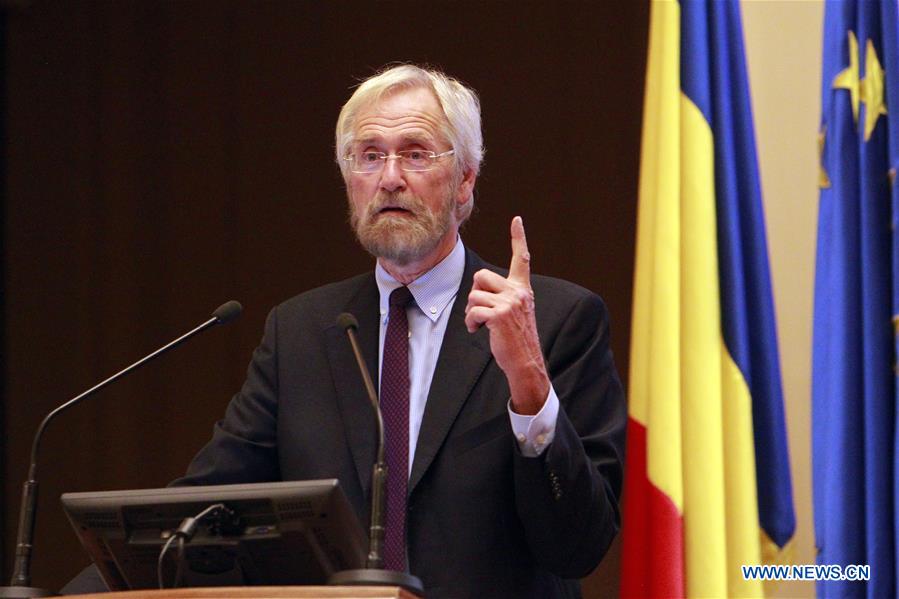
European Central Bank (ECB) chief economist Peter Praet speaks at Romanian Central Bank's headquarters in Bucharest, Romania's capital, July 3, 2018. The risks surrounding the euro area growth outlook still remain broadly balanced, while risks related to global factors, including the threat of increased protectionism, have become more prominent, Peter Praet said Tuesday. (Xinhua/Cristian Cristel)
BUCHAREST, July 3 (Xinhua) -- The risks surrounding the euro area growth outlook still remain broadly balanced, while risks related to global factors, including the threat of increased protectionism, have become more prominent, European Central Bank (ECB) chief economist Peter Praet said Tuesday.
Praet, who is also a member of the Executive Board of the ECB, made his statement in a lecture held at the National Bank of Romania.
Eurozone growth remained robust and the rhythm of growth is expected to continue for the coming years, despite a slowdown at the end of last year and in the beginning of 2018, he said.
The recent moderation of business cycle indicators is a reflection of the very strong performance last year, he said.
"At the end of 2017 and in the beginning of 2018 we also see that the demand for the European product was weaker, but I was not surprised by this moderation of growth, as it was expected and was not worrisome," noted Praet.
The business climate will be lucrative for investments, as the financing conditions are favorable and the robust labor market, steady income and profit growth are expected to continue to support private consumption and investment, added Praet.
According to him, it is difficult to anticipate the state of businesses climate in the next three or four years and it is still too early to tell if the trade wars will affect business climate.
Yet, the markets' interpretation was that the risks are high, he said. "The interpretation as you see at the stock markets today said that perhaps is something more malign, more fundamental and business started to worry about the fact that trade war is going to affect economies."















